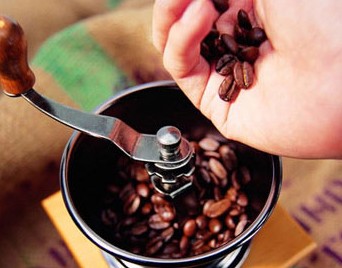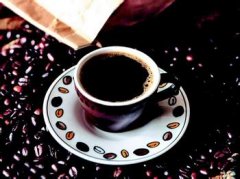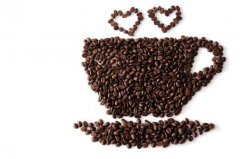French Coffee Culture with a long History of basic Coffee knowledge

When it comes to Bordeaux in France, people may think more of the world-famous Bordeaux wine. But in fact, coffee, a commodity in world trade, has also been closely related to Bordeaux for many years.
The first coffee shop in Europe appeared in the mid-17th century. With the development of coffee trade, two French ports, Le Havre and Bordeaux, have gradually become trade centers for imported coffee beans. For more than three hundred years, coffee has left more than just a legacy in Bordeaux.
Coffee beans are green, so they are also called "green coffee". Green coffee is roasted before it becomes a common brown coffee bean. The roasted coffee beans are crushed and then brewed or boiled in boiling water to become fragrant and delicious coffee. There are many coffee roasting shops in Bordeaux, and although they are small, they have not lost the competition with big companies. A roaster called Marshall processes as many as 125 tons of coffee beans a year. Marshall Grace, the owner of the Marshall store, said that green coffee is fragrant and even tastes like wine after roasting, which is very attractive.
Another roaster, Sabre, can provide 200 tons of coffee a year for cafes, restaurants and restaurants. In order to do better, they have to adjust at any time according to customers' requirements. This is actually not an easy job. Henry Dyers, head of the Sabre store, said that because the supply of coffee beans is very different, they must be mixed to ensure consistency in order to ensure the quality of coffee. Another roasting restaurant named Moggi is famous for its unique Bordeaux flavor. Christopher, the store owner, said that although there are more and more retail customers, their business has been very difficult due to the economic downturn and the impact of large companies at home and abroad.
French coffee culture has a long history and is by no means as simple as eating and drinking. A cup of coffee with an afternoon of sunshine and time, this is a typical French coffee, the important thing is not the taste but the light attitude and style. The French pay attention to the environment and sentiment when drinking coffee, reading, writing, talking and killing time at the small coffee table by the side of the road. Since the beginning of this century, cafes have often become centers of social activities, clubs for intellectuals to debate issues, and even a typical symbol of French society and culture.
Important Notice :
前街咖啡 FrontStreet Coffee has moved to new addredd:
FrontStreet Coffee Address: 315,Donghua East Road,GuangZhou
Tel:020 38364473
- Prev

Coffee culture in Turkey
Each coffee country has its own coffee culture and drinking methods, take a look at it! Americans drink coffee like a game that doesn't need rules, and they let it go. Europeans brew coffee with all kinds of attention, Americans are dismissive. Americans drink coffee freely, and coffee also penetrates their lives.
- Next

Basic knowledge of Coffee Taste Italian Coffee Culture (1)
Citt Espresso Club, a famous coffee brand from Italy, settled in Yulongfang store in February 2008. since then, Citt Espresso Club has created a relaxed and pleasant communication space for people who love coffee culture in China, bringing a new way of life to China, making people feel an European attitude towards life and enjoy it. This time the chief Citt Espresso Club
Related
- Beginners will see the "Coffee pull flower" guide!
- What is the difference between ice blog purified milk and ordinary milk coffee?
- Why is the Philippines the largest producer of crops in Liberia?
- For coffee extraction, should the fine powder be retained?
- How does extracted espresso fill pressed powder? How much strength does it take to press the powder?
- How to make jasmine cold extract coffee? Is the jasmine + latte good?
- Will this little toy really make the coffee taste better? How does Lily Drip affect coffee extraction?
- Will the action of slapping the filter cup also affect coffee extraction?
- What's the difference between powder-to-water ratio and powder-to-liquid ratio?
- What is the Ethiopian local species? What does it have to do with Heirloom native species?

